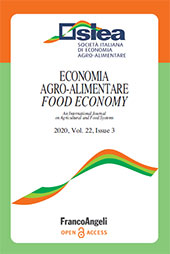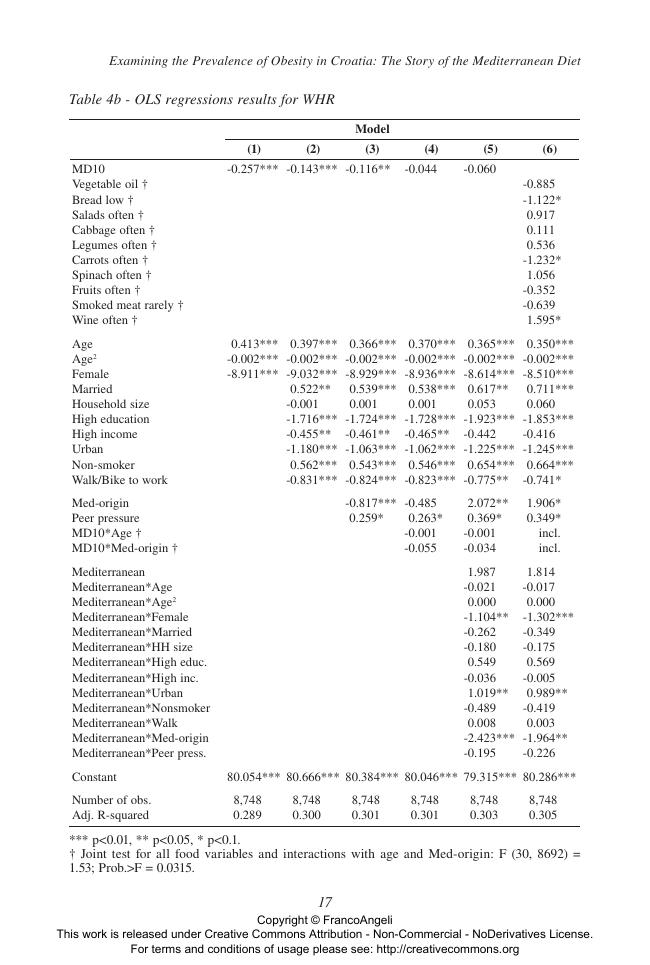Examining the prevalence of obesity in Croatia : the story of the Mediterranean diet
P. 1-32
The objective of this study is to establish a causal relationship between the Mediterranean diet (md) and various measures ofoverweightness using the Croatian Adult Health Survey 2003data. Our results show that among three measures of obesity(body mass index, waist-to-hip ratio (whr ) and obesity (bmi≥ 30), we found statistically the most convincing relationship between the bmi and the md. Our results show that an increasein the Mediterranean diet aggregate index by 10% reducesthe bmi by about 0.9%.
When the MD10 index is replacedwith the set of its ten constituent food groups, as a group,these food variables are jointly statistically significant, most of them have expected (negative) signs, and some of them arealso individually significant. For the other two overweightmeasurements (whr and obesity) we found that the impactof md aggregate index is insignificant but when the index isreplaced by its ten constituent food elements, these are jointlystatistically significant in explaining the variation in the obesity measures. [Publishers' text]
Forma parte de
Economia agro-alimentare : XXII, 3, 2020-
Artículos del mismo número (disponibles individualmente)
-
Información
Código DOI: 10.3280/ecag3-2020oa11036
ISSN: 1972-4802
KEYWORDS
- Mediterranean diet, Obesity, Time effects, Peer effects



